Introduction
RTA Certified Helmets are standard helmets that target bicycle users within Dubai’s metropolitan area.
The RTA Helmet is an easy to use, affordable and aesthetically designed helmet used to promote safety amongst Dubai’s bicycle commuters.
Apart from its important safety advantage, the RTA Certified Helmet is also valuable for Dubai’s bicycle user as it will establish their official membership in Dubai’s Bicycle Commuters’ Association.
The RTA Certified Helmet is unique from other helmets because it is provided and endorsed by the Dubai’s Road and Transport Authority. It is priced under the below the average bicycle helmet in the marketing and will garner positive response from current and prospective Bicycle Commuters in Dubai.
However, critical decisions are required from the operations sector of the Road and Transport Authority for successful production and distribution of the RTA Certified Helmets. This presentation highlights the six most important critical decisions.
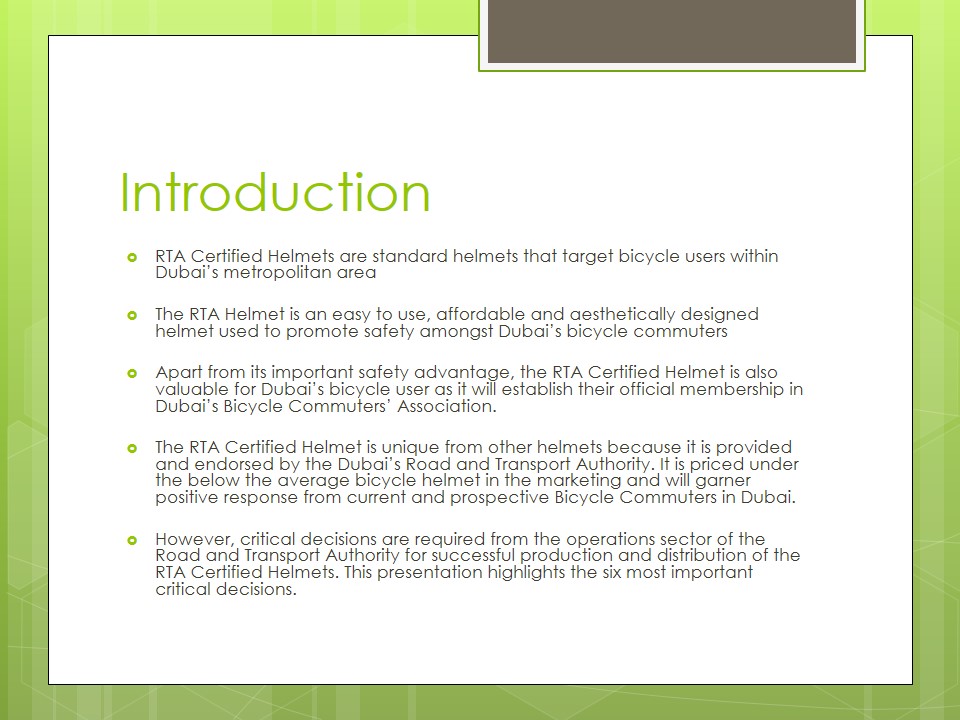
Design of goods and services
One of the critical decisions associated with the RTA Certified Helmet project is the decision of the design of the product (Norman 29).
The proposed product is a bicycle helmet fitted to safety standards.
The helmet is designed with both safety and aesthetic considerations in mind.
The product is offered by the Road and Transport Authority of Dubai. This makes it necessary for safety standards to be strictly adhered to.
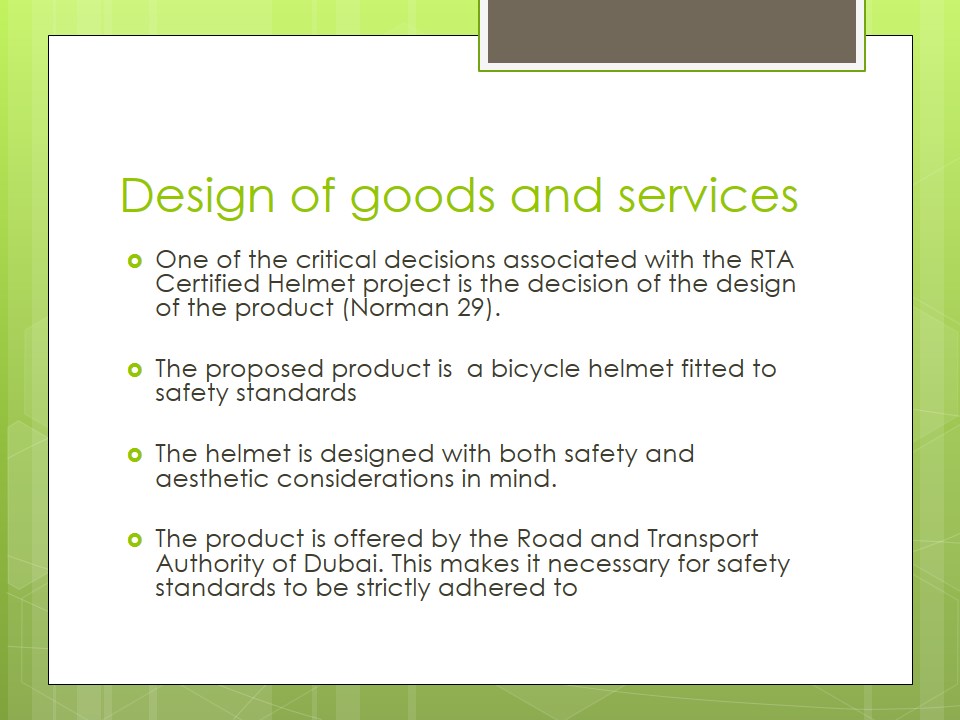
Managing quality
- Quality will be defined by the conformity of the product to safety standards (Pirkl 24).
- The product must also include a manual for users to adhere to.
- Quality will also be measured by aesthetic considerations (Hekkert and Schifferstein 349). The product must be as attractive as the best products on the market.
- The quality control officer, in collaborations with the standards department of the RTA will be responsible for ensuring quality.
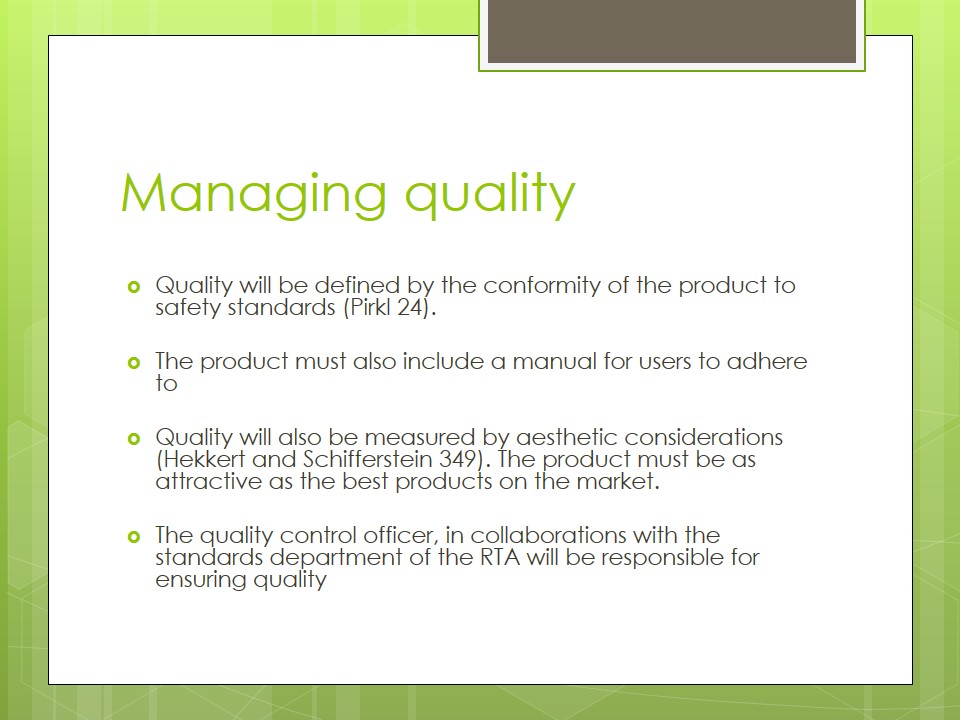
Location strategy
It is also important to decide where the facility for distributing the helmets will be located.
The facility location must be selected in such a way that the strategy is propagated.
The facility will be located at Emaar’s Downtown Dubai, where major tourists attractions such as the Burj Khalifa, are located (Emirates247).
Ensuring effective distribution in this location will naturally encourage the inclusion of the helmets in other parts of Dubai due to the significance Emaar’s Downtown Dubai.
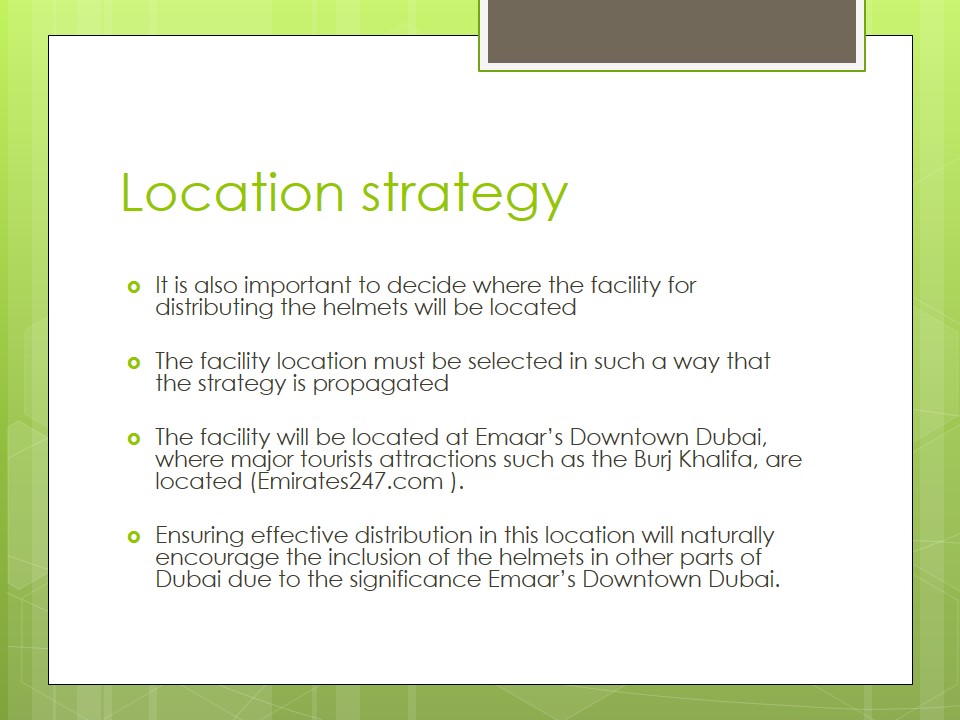
Supply-chain management
The production of the helmets will be outsourced to a safety material production company in Asia.
The relationship between this company and the Dubai’s RTA will effected through an internet based B2B relationship.
Demands will be made by the RTA over the internet and the suppliers will manage the supplies.
RTA’s Certified Helmet standards will be communicated to the helmet production company in Asia. The RTA certification seal will be sent to the company to print on each helmet produced for RTA’s Certified Helmet batch.
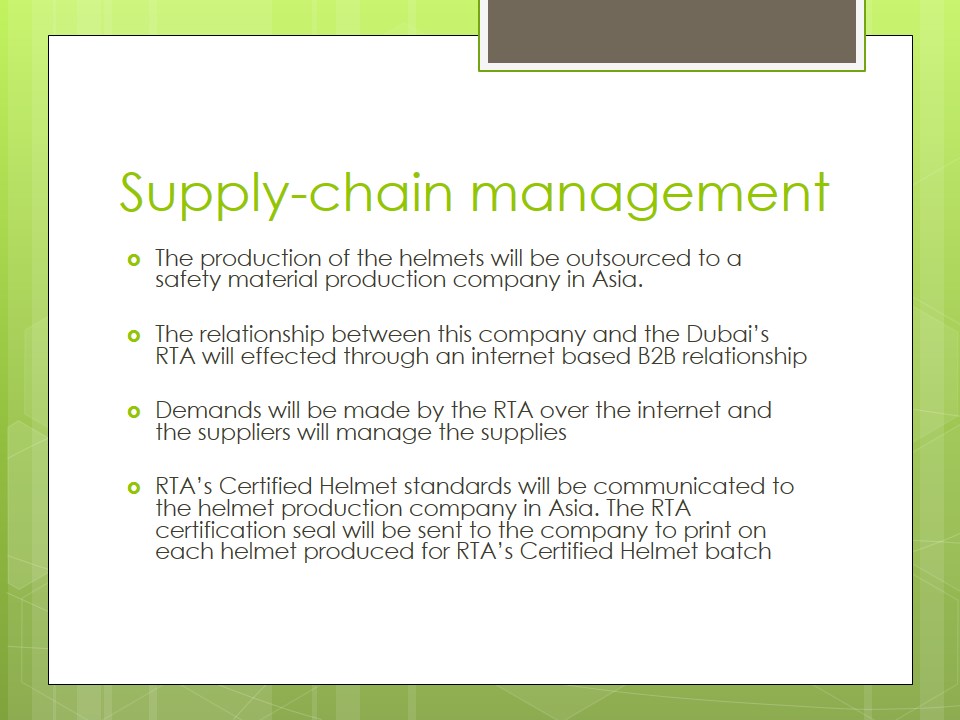
Inventory, material requirements planning, and JIT
Statistics indicates a continues increase in the number of bicycle users in Dubai.
The appreciation as bicycles as a means of commuting within major Dubai towns, such as Emaar’s Downtown Dubai, is seen through the rent-a-bike scheme. This also serves as an avenue for increasing bicycle commuters (Al Taher).
The inventory of the RTA’s Certified Helmet will be based on the projected number of commuters for the next one year.
The initial inventory will be 50,000 RTA Certified Helmets.
Inventory will be re-ordered when the available helmets drops to under 2,0000.
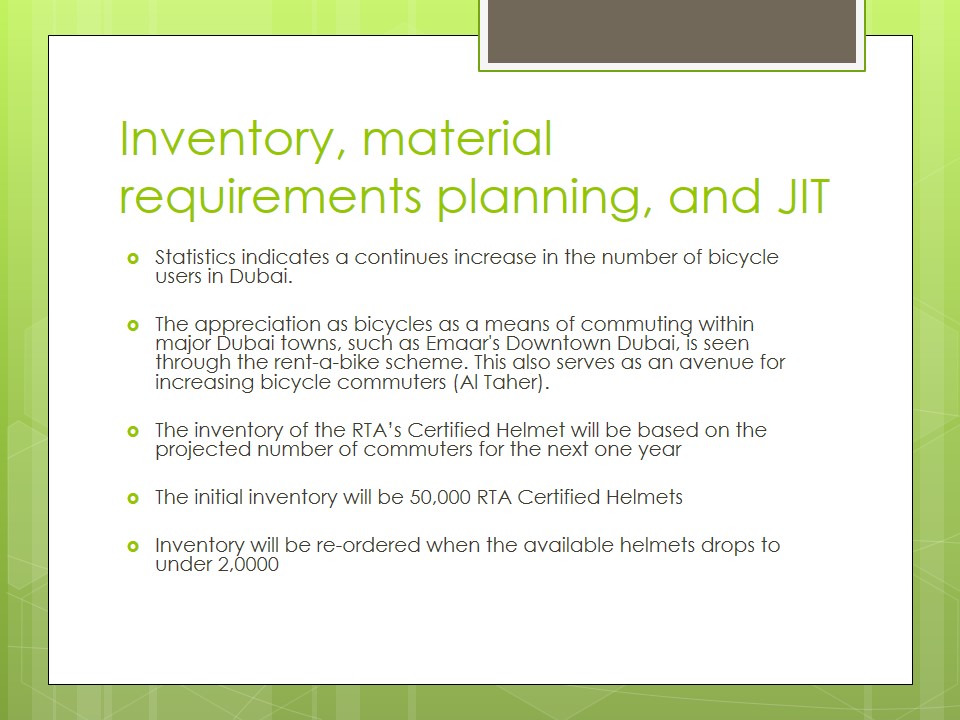
Conclusion
This presentation highlighted the critical decisions necessary for the successful production and distribution of RTA Certified Helmets for bicycle commuters in Dubai.
The RTA Certified Helmets are affordable and attractive, and also conform to road safety standards for bicycle commuting.
Each decision was taken considering the product’s strategy towards ensuring that all bicycle commuters in Dubai use the RTA Certified Helmet.
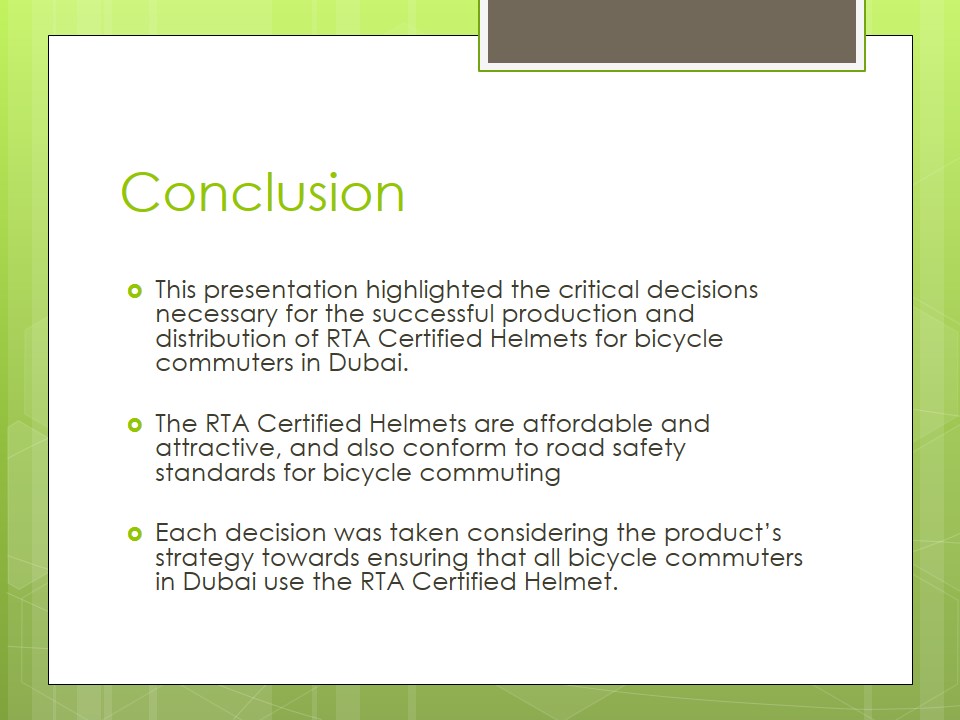
References
Al Taher, Nada. “Cycling enthusiasts on the increase in Dubai.” Gulfnews. 2014. Web.
“Now you can pedal your way through Downtown Dubai: Push-bikes can be rented for 30 minutes up to 24 hours.” Emirates 24/7. ONline Source. Web.
Hekkert, P. and Schifferstein, H. Product experience. 2008. Amsterdam: Elsevier Science.
Norman, D. The design of everyday things. 2002. New York: Basic Books.
Pirkl, James J. Transgenerational Design: Products for an Aging Population. 1994. New York: Vn Nostrand Reinhold.